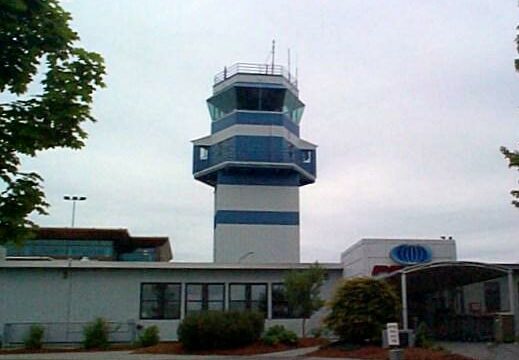Million Air Project Grounded at Pease

Million Air’s controversial plans to build a facility at Pease International Airport have run out of runway and do not appear to be taking off any time soon.
The application deadline for the Texas-based company’s plans to build a new fixed-base operator facility, including a 90,000-gallon jet fuel farm, recently expired. Now, says Tiffany Eddy, a spokesperson for the Pease Development Authority, the project is grounded.
“Pease Aviation Partners has not sought to move its site plan and subdivision application before the PDA Board of Directors acting as a Planning Board. At this point, deadlines for consideration of that application under the PDA land use control have expired. As a result, there is no further action for PDA to take at this time,” Eddy told NHJournal.
Million Air brought the proposal under the Pease Aviation Partners brand name.
NHJournal contacted Million Air last month and asked about reports that its proposal had missed a key deadline and was not moving forward. The company insisted it was still all systems go.
“We are not pulling out of the opportunity at Pease; we’re just working through some things,” said Million Air’s Allison Woolsey.
However, the company did not respond to requests for comment on Wednesday.
Late last year, the Federal Aviation Administration put Pease officials on notice over the Million Air plan. The agency notified Pease it has the authority to review the plans and ordered Pease to have a new environmental impact study done to FAA standards as part of a federal application.
But as of last week, Pease had yet to submit anything to the FAA regarding the Million Air proposal.
“The current Airport Layout Plan for Portsmouth International Airport shows the potential development of an additional fuel farm. The FAA has not received any requests from the airport to proceed with that development,” the agency told NHJournal.
Million Air planned to build a new fixed-based operator facility at Pease to service private aircraft. The proposal included the 90,000 fuel storage system, which worried Seacoast residents. The project’s construction was also close to wetlands that feed into the local drinking water sources. Concerned locals feared construction would mean disturbing those wetlands.
The setback is somewhat surprising for a project that had appeared all but inevitable for months. Opposition from Portsmouth-area political leaders and community members was both vocal and frequent, but it had little effect on the project’s progress.
Skies grew cloudy for Million Air last June when environmental impacts on the wetlands forced the company and the board to put off the approval until at least December. According to a memo from Michael Mates, the PDA’s director of engineering, Million Air needed more time to complete a review of the Gosling Station Wells, which includes water that flows into the Haven Well.
The Gosling Wells were taken offline in the 1950s when Pease was built as an Air Force base. It’s mostly from the use by the military that created the PFAS contamination that has haunted residents on the Seacoast. PFAS is a chemical with a decades-long half-life and is linked to serious illness and certain cancers.
Port City Air, which operates an existing FBO at Pease, had been fighting Million Air’s fuel farm siting proposal for months.
Port City is currently in court trying to intervene in the appeal of state approvals for Million Air. Port City was part of the appeal to the New Hampshire Department of Environmental Protection’s Water Council over state approval for Million Air’s wetlands permit. However DES threw out Port City’s appeal on the argument the company does not qualify as an abutter under the law. Port City’s appeal before the New Hampshire Supreme Court is currently pending a decision.


